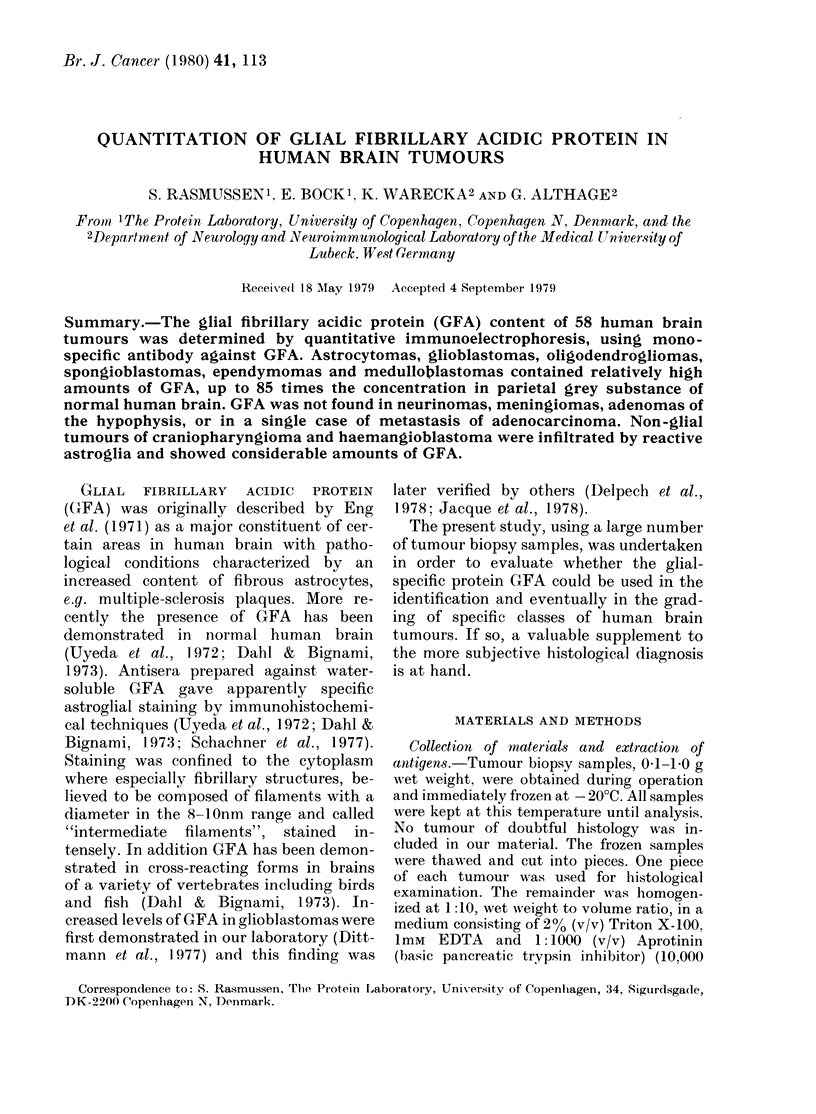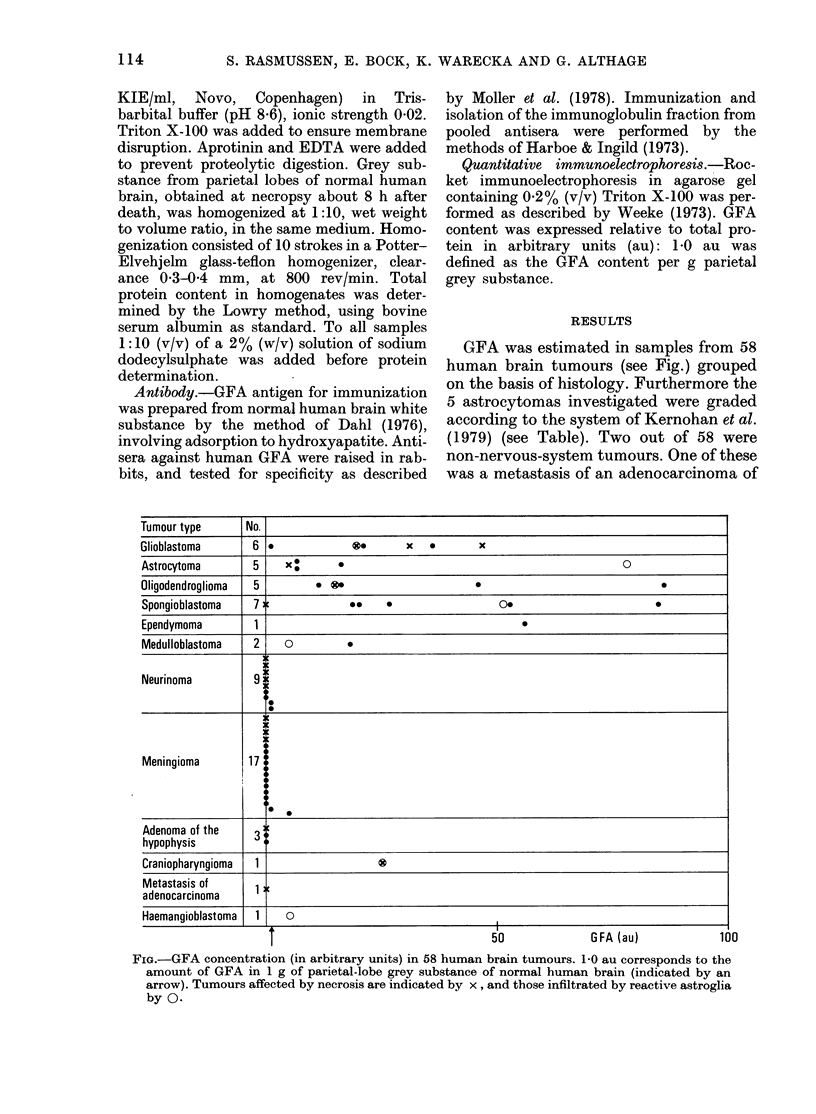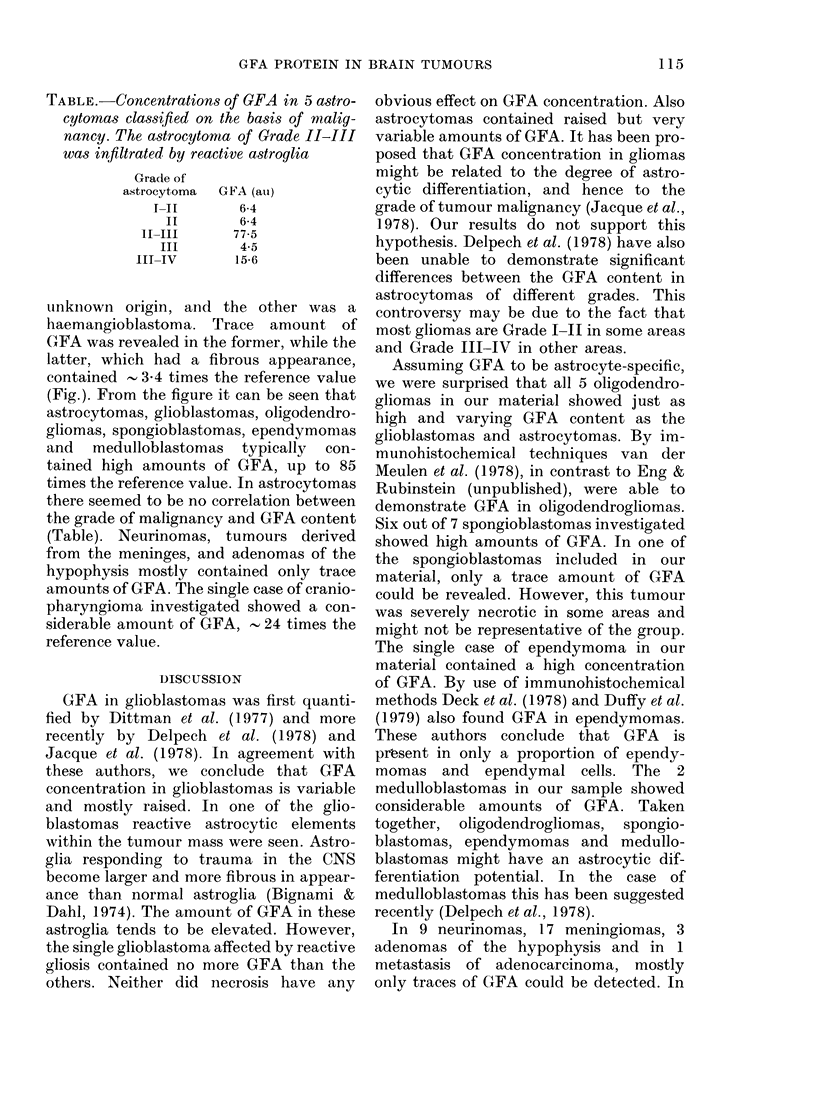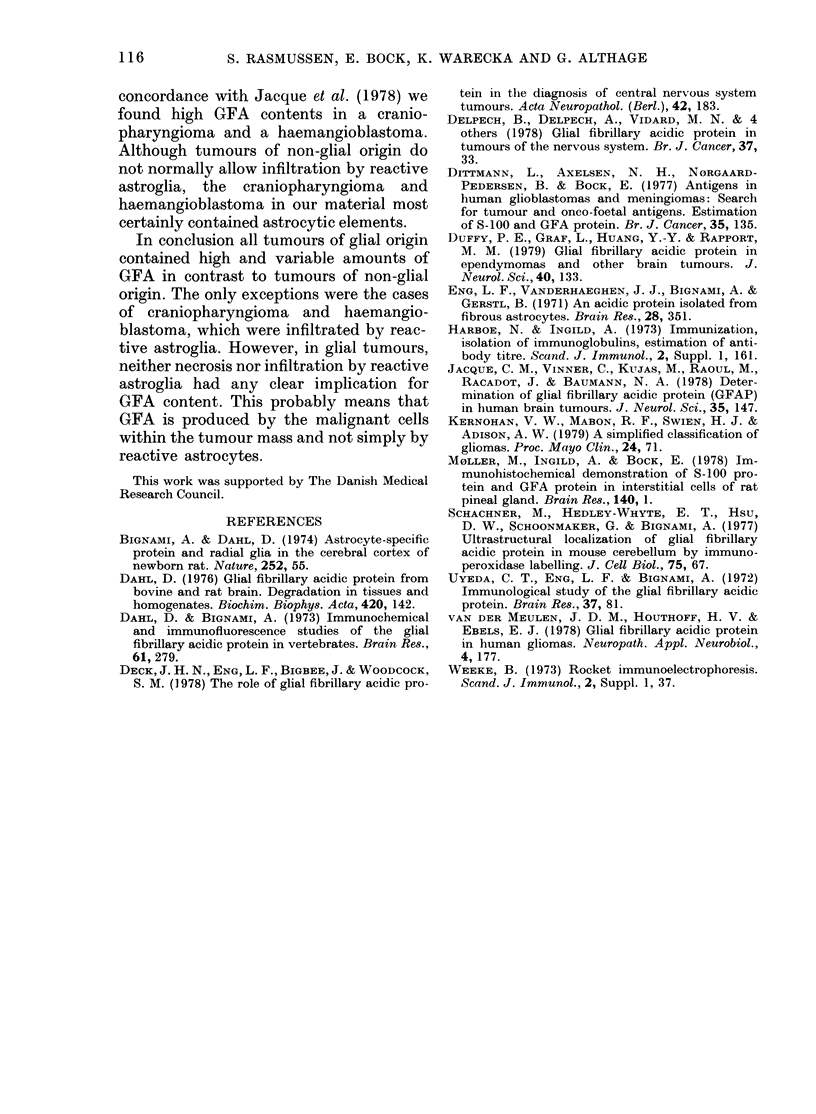Abstract
The glial fibrillary acidic protein (GFA) content of 58 human brain tumours was determined by quantitative immunoelectrophoresis, using monospecific antibody against GFA. Astrocytomas, glioblastomas, oligodendrogliomas, spongioblastomas, ependymomas and medulloblastomas contained relatively high amounts of GFA, up to 85 times the concentration in parietal grey substance of normal human brain. GFA was not found in neurinomas, meningiomas, adenomas of the hypophysis, or in a single case of metastasis of adenocarcinoma. Non-glial tumours of craniopharyngioma and haemangioblastoma were infiltrated by reactive astroglia and showed considerable amounts of GFA.
Full text
PDF



Selected References
These references are in PubMed. This may not be the complete list of references from this article.
- Bignami A., Dahl D. Astrocyte-specific protein and radial glia in the cerebral cortex of newborn rat. Nature. 1974 Nov 1;252(5478):55–56. doi: 10.1038/252055a0. [DOI] [PubMed] [Google Scholar]
- Dahl D., Bignami A. Immunochemical and immunofluorescence studies of the glial fibrillary acidic protein in vertebrates. Brain Res. 1973 Oct 26;61:279–293. doi: 10.1016/0006-8993(73)90533-7. [DOI] [PubMed] [Google Scholar]
- Dahl D. Glial fibrillary acidic protein from bovine and rat brain. Degradation in tissues and homogenates. Biochim Biophys Acta. 1976 Jan 20;420(1):142–154. doi: 10.1016/0005-2795(76)90353-6. [DOI] [PubMed] [Google Scholar]
- Deck J. H., Eng L. F., Bigbee J., Woodcock S. M. The role of glial fibrillary acidic protein in the diagnosis of central nervous system tumors. Acta Neuropathol. 1978 Jun 30;42(3):183–190. doi: 10.1007/BF00690355. [DOI] [PubMed] [Google Scholar]
- Dittmann L., Axelsen N. H., Norgaard-Pedersen B., Bock E. Antigens in human glioblastomas and meningiomas: Search for tumour and onco-foetal antigens. Estimation of S-100 and GFA protein. Br J Cancer. 1977 Feb;35(2):135–141. doi: 10.1038/bjc.1977.20. [DOI] [PMC free article] [PubMed] [Google Scholar]
- Duffy P. E., Graf L., Huang Y. Y., Rapport M. M. Glial fibrillary acidic protein in ependymomas and other brain tumors. Distribution, diagnostic criteria, and relation to formation of processes. J Neurol Sci. 1979 Feb;40(2-3):133–146. doi: 10.1016/0022-510x(79)90199-0. [DOI] [PubMed] [Google Scholar]
- Eng L. F., Vanderhaeghen J. J., Bignami A., Gerstl B. An acidic protein isolated from fibrous astrocytes. Brain Res. 1971 May 7;28(2):351–354. doi: 10.1016/0006-8993(71)90668-8. [DOI] [PubMed] [Google Scholar]
- Harboe N., Ingild A. Immunization, isolation of immunoglobulins, estimation of antibody titre. Scand J Immunol Suppl. 1973;1:161–164. doi: 10.1111/j.1365-3083.1973.tb03798.x. [DOI] [PubMed] [Google Scholar]
- Jacque C. M., Vinner C., Kujas M., Raoul M., Racadot J., Baumann N. A. Determination of glial fibrillary acidic protein (GFAP) in human brain tumors. J Neurol Sci. 1978 Jan;35(1):147–155. doi: 10.1016/0022-510x(78)90107-7. [DOI] [PubMed] [Google Scholar]
- Schachner M., Hedley-Whyte E. T., Hsu D. W., Schoonmaker G., Bignami A. Ultrastructural localization of glial fibrillary acidic protein in mouse cerebellum by immunoperoxidase labeling. J Cell Biol. 1977 Oct;75(1):67–73. doi: 10.1083/jcb.75.1.67. [DOI] [PMC free article] [PubMed] [Google Scholar]
- Uyeda C. T., Eng L. F., Bignami A. Immunological study of the glial fibrillary acidic protein. Brain Res. 1972 Feb 11;37(1):81–89. doi: 10.1016/0006-8993(72)90347-2. [DOI] [PubMed] [Google Scholar]
- van der Meulen J. D., Houthoff H. J., Ebels E. J. Glial fibrillary acidic protein in human gliomas. Neuropathol Appl Neurobiol. 1978 May-Jun;4(3):177–190. doi: 10.1111/j.1365-2990.1978.tb00534.x. [DOI] [PubMed] [Google Scholar]


